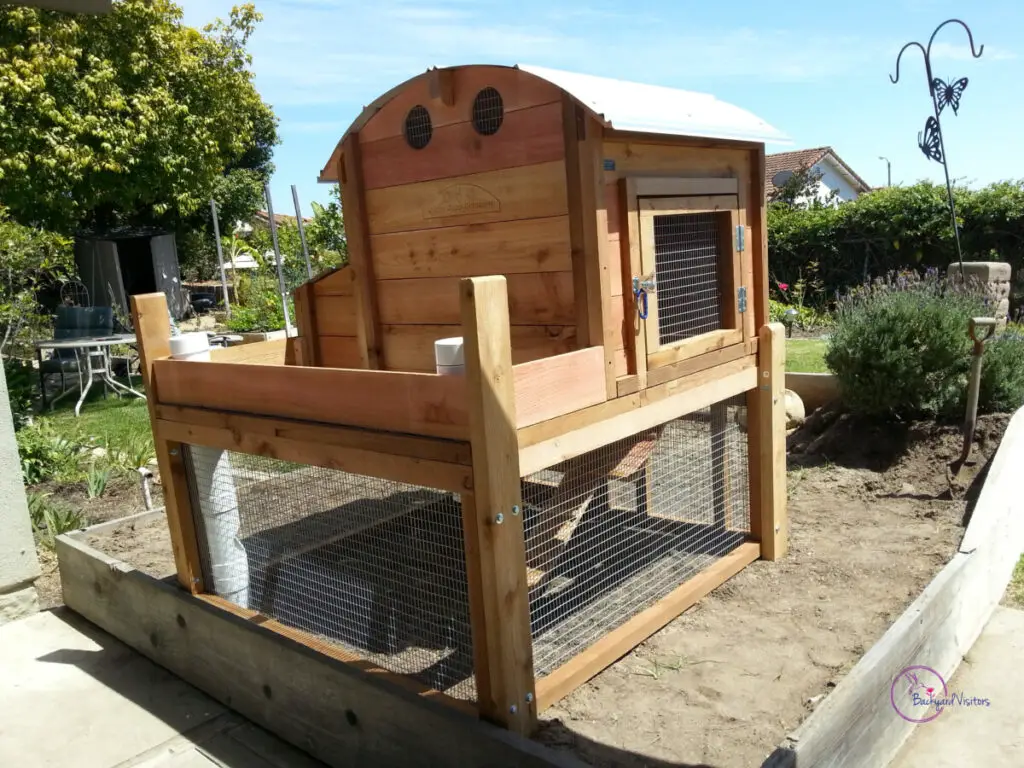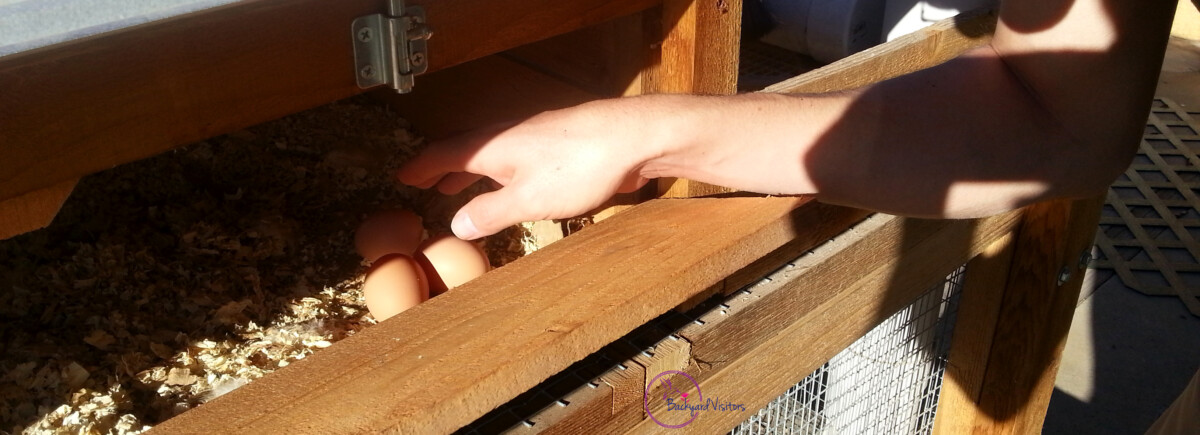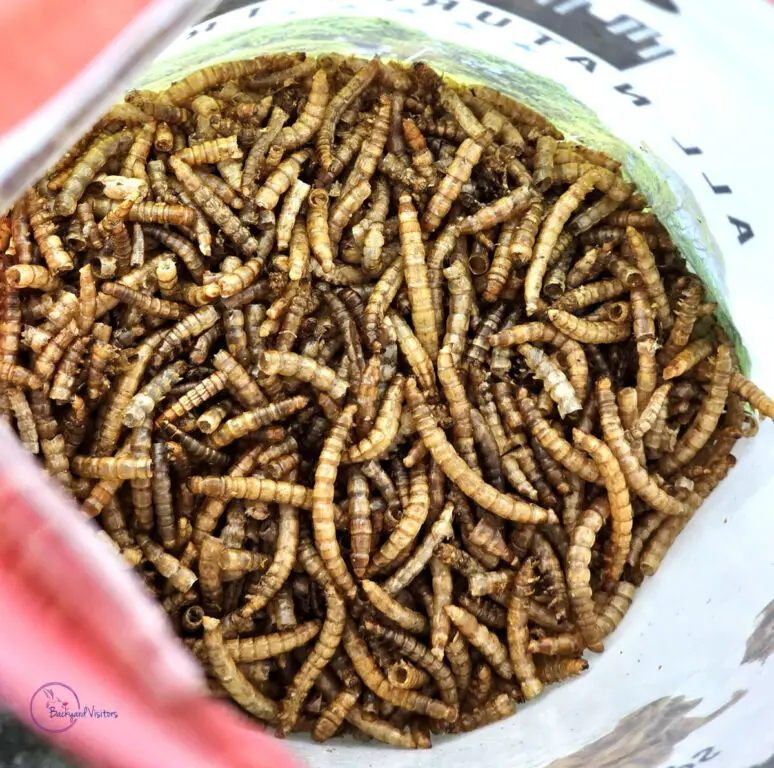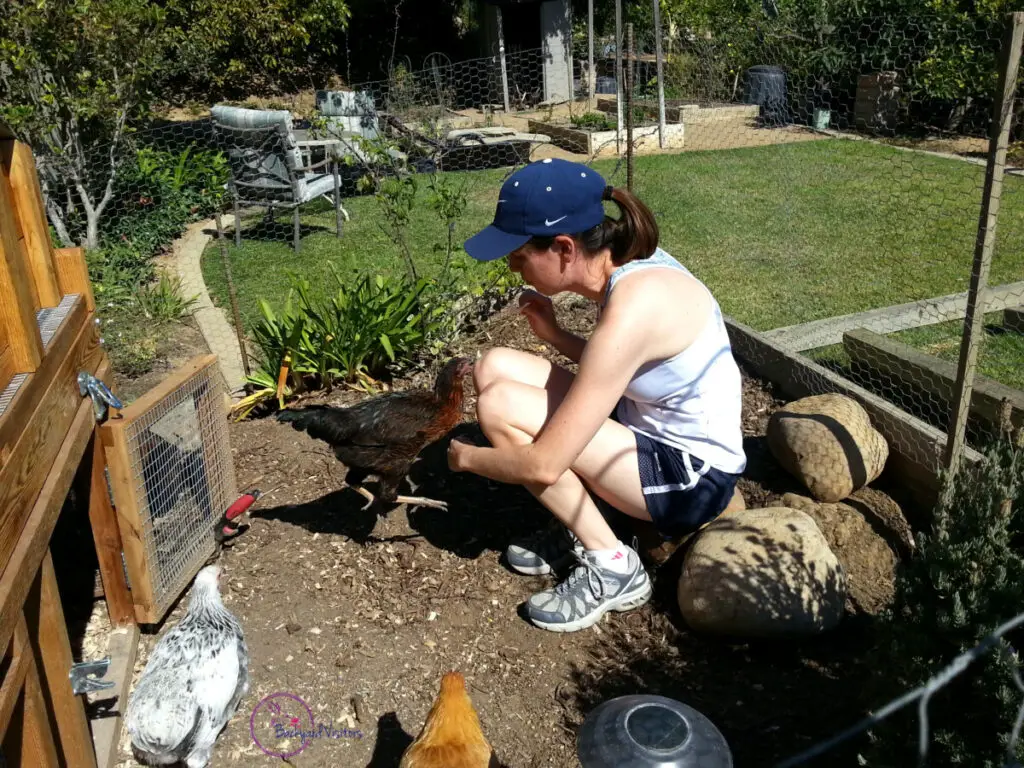This post contains affiliate links.
Welcome to your ultimate resource to keep your chickens happy and healthy right in your own backyard! Whether you are a novice or a seasoned chicken keeper, my guide is packed with essential tips and advice.
From designing the perfect coop to ensuring a balanced diet and preventing common health issues, I have everything you need to create a thriving environment for your feathered friends. Join me as we explore the joys and rewards of raising chickens to ensure they are safe and cheerful in their backyard home!
Tips to Keep Your Chickens Healthy and Happy
As a backyard chicken owner, there is nothing quite as rewarding as seeing your flock thrive and produce healthy eggs. To keep your chickens happy and healthy, it is essential to focus on their overall well-being and environment.
First and foremost, fresh water and a balanced diet are critical for chicken health. Ensure that your chickens have access to clean drinking water and high-quality feed to prevent a multitude of health issues and to keep your feathered friends in top shape.
Another vital aspect to maintain healthy chickens is the condition of their coop. Proper ventilation prevents respiratory illnesses and helps keep your coop free from harmful ammonia build-up. Regular cleaning and maintenance of the coop not only deter pests but also keep chickens from contracting diseases. Consider the coop’s location as it should provide protection from harsh weather while also offering sufficient sunlight.

To keep your flock engaged and happy, incorporate an area for dust bathing and a variety of levels of perches to make a significant difference. Chickens are naturally active and inquisitive creatures, and by providing a stimulating environment, you contribute to their mental and physical health. Herbs such as lavender and rosemary can be added to nesting boxes not only to keep pests at bay but also to soothe and calm your birds. These little extras will keep your chickens healthy and exceedingly happy.
Predator prevention is another key to keep your flock safe. Ensure your coop is secure from predators such as foxes, raccoons, and even neighborhood cats. Fortified fencing and secure coop doors save a lot of distress and help keep your chickens safe. Additionally, regular check-ups from a specialized chicken vet will catch any potential health issues early, which is vital for long-term poultry health.
Happy and healthy hens lay eggs of higher quality. Follow these practical tips to keep your chickens healthy and also enjoy the rewarding experience of raising chickens in your backyard.

Notice the security latch above and the sturdy wire mesh below to keep predators out.
We will delve into selecting the ultimate coop for your hens, explore easy to clean coops and provide additional tips to keep your backyard chickens safe, along with advice from a chicken vet on best practices. Also included is a discussion on how to enhance chicken life and provide health benefits for your coop inhabitants.
Top 10 Tips To Keep Your Backyard Chickens Healthy and Happy
- Provide a Balanced Diet: Ensure chickens have access to fresh, nutrient-rich feed designed for their specific life stages, combined with an ample supply of clean water.
- Secure, Spacious Coop: Maintain a clean, ventilated, and predator-proof coop with adequate space per bird to prevent overcrowding and stress.
- Regular Health Checks: Routinely check for signs of illness or distress like changes in behavior, appearance, or egg production, seeking veterinary care when needed.
- Protect from Pests: Regularly clean the coop and use appropriate measures to control pests such as mites, lice, and rodents that can spread disease.
- Proper Ventilation: Keep the air in the coop fresh and moisture-free to prevent respiratory diseases and limit the growth of harmful bacteria and molds.
- Safe Range Area: Provide a secure outdoor space protected from predators, allowing chickens to exercise, forage, and exhibit natural behaviors.
- Supplement Light: During shorter days, consider supplemental lighting in the coop to maintain egg production and keep chickens active.
- Manage Waste: Regularly remove droppings and spent bedding from the coop to prevent ammonia build-up and reduce infection risks.
- Stress Reduction: Avoid frequent disturbances and loud noises around the coop to minimize stress among the chickens.
- Environmental Enrichment: Introduce perches, dust baths, and varied terrain in the coop and range area to stimulate and entertain the chickens.
Read my other related articles:
- Creating the Perfect Home for Your Backyard Chickens
- Choosing the Right Chicken Coop for Your Space
- The Importance of Proper Ventilation and Lighting in Coops
- Predator Proofing Your Chicken Coop: Tips and Tricks
- Must-Have Features for Your Chicken Run
- Common Mistakes to Avoid in Coop Design
Selecting the Ultimate Coop for Your Hens
Choosing the right chicken coop is crucial to ensure the well-being of your feathered friends. When selecting the coop for your backyard, it is essential to consider several factors to meet the requirements of your hens.
First and foremost, size matters. Your hens need enough space to roost comfortably, move freely, and engage in natural behaviors. An overcrowded coop will lead to stress, pecking, and health issues.
Ventilation is another key aspect of the chicken coop. A well-ventilated coop helps to keep the air fresh and reduces the buildup of ammonia from droppings, which will lead to respiratory problems in chickens. Make sure the design of the chicken coops you are considering includes windows or vents that are protected from predators but still allow for adequate air flow.
Protection against predators is non-negotiable. When scouting for chicken coops, the security features are a major priority. The coop must be fortified to keep out foxes, raccoons, and other local predators. Check that the coop has sturdy locks and reinforced structures that deter even the most determined intruder. The location of the coop also plays a significant role in its defense. Placing it in a well-lit, open area prevents predators from sneaking up unnoticed.
Accessibility is another important factor when choosing chicken coops. This includes ease of access for both you and your chickens. The coop should have doors that are big enough for you to enter for cleaning and maintenance, yet secure enough when closed. Look for chicken coops that offer convenient features such as sliding trays or easy-to-open panels for effortless cleaning. Easy access helps to maintain a hygienic environment for your chickens, which is essential for their health.
When evaluating the coop designs, consider the materials used for construction. You will want a coop that is durable enough to withstand various weather conditions and resist decay over time. Wooden coops are popular for their aesthetic appeal and natural insulation properties, but they require regular maintenance to keep them in good condition and pest-free.
The style of the coop also affects your chickens’ quality of life. Some designs incorporate raised areas and perches that mimic a natural environment, which helps to keep your chickens active and engaged. These features greatly enhance your chickens’ living conditions and overall happiness.
With all these aspects in mind, selecting the perfect coop for your backyard chickens becomes a clearer task. Remember, a happy hen is a productive hen. By providing a safe, comfortable, and stimulating environment, you will ensure that your chickens thrive.
Top 11 Features a Chicken Coop Should Have
- Proper Ventilation: Ensure there are enough vents or windows that can be opened or adjusted to maintain air circulation without creating drafts.
- Predator Protection: Coop should be made secure from ground and aerial predators with sturdy hardware cloth and lockable doors.
- Easy to Clean: Design the coop with removable trays or easy access points for regular cleaning and maintenance.
- Nesting Boxes: Provide at least one nesting box per three to four hens, lined with soft bedding material like straw or wood shavings.
- Raised Floor: Keeping the floor raised prevents dampness and helps deter predators.
- Adequate Space: Ensure there is enough room for all chickens to roost comfortably; typically 2-3 square feet per chicken inside the coop.
- Roosting Bars: Include adequate and appropriately spaced roosting bars for the number of chickens you have.
- Lighting: Natural light is ideal, but in absence, install a safe light source for shorter winter days to help maintain egg production.
- Feeder and Waterer: Place to securely set up feeders and waterers that prevent contamination by feces and provide constant access to fresh water.
- Insulation: Proper insulation is necessary to keep chickens warm during the winter and cool in the summer.
- Outdoor Access: Include a protected run area that allows chickens to move, forage, and access fresh air and sunlight.
Easy to Clean Coops: Keeping Your Backyard Chickens Safe
When it comes to keeping your backyard chickens both happy and healthy, the design and maintenance of their coop is paramount. An easy-to-clean coop is not just a convenience for you; it is essential to ensure that your chickens live in a safe, healthy and secure environment. Dirty coops lead to disease outbreaks and vermin problems.
Chicken coops require regular cleaning and maintenance to keep them in tip-top shape. Design a coop that is easy to clean and contribute to the overall well-being of your backyard chickens. A well-thought-out coop layout makes the difference between a tedious clean-up and a quick, efficient process. To keep the coop hygienic, ensure that you can easily access all corners of the coop.
Choosing materials for the coop that are smooth and resistant to moisture make the cleaning and disinfecting process much easier. Materials such as treated wood or metal are particularly effective.
The coop should have a steep enough roof to discourage poultry from roosting and pooping on top, to decrease contamination of the coop.
Ventilation is another key factor to keep the coop environment sanitary. Proper airflow prevents the build-up of ammonia and moisture, which both contribute to respiratory issues in your chickens. The coop should be structured to offer ample ventilation, but still secure enough to keep predators out.
If you create a coop that is easy to clean, it facilitates effortless hygiene maintenance and also allows for quick inspection of your chickens for any signs of distress or illness. Your ability to maintain the coop easily impacts your chickens’ health directly. Good hygiene practices in the coop help to prevent mites, lice, and other parasites that can plague your chickens.
Remember that the frequency of cleaning depends on the size of your chicken flock and coop. Bigger flocks in smaller coops will require you to clean more frequently than smaller flocks in spacious coops. Always remove wet or soiled bedding promptly to prevent the buildup of harmful bacteria and to maintain the quality of air in the coop.
Incorporating features such as removable droppings trays or having a coop with a floor that can be easily hosed down simplifies your cleaning routine. Additionally, consider the space around the coop. Keep this area tidy to enhance the coop’s accessibility for cleaning and to keep predators at bay.
In conclusion, an easy-to-clean coop is pivotal to keep your backyard chickens safe and secure. Not only does it support the health and comfort of your chickens, it also ensures that managing your flock remains a pleasure, not a chore. Emphasize cleanliness and security in your coop design to promote a thriving backyard flock.
The Chicken Vet on Keeping Chickens in Your Backyard
My comprehensive guide on how to keep your chickens both happy and healthy right in your own backyard, I have learned that the key to successful poultry parenting lies in understanding the delicate balance of their needs. The coop you choose plays a pivotal role in this, but it is just the start. Chicken health requires consistent attention and a proactive approach to ensure your feathered friends thrive.
As we delve deeper into keeping chickens, it is essential to realize that their living environment profoundly affects their well-being. A well-maintained coop keeps predators out and also ensures that your backyard chickens are safe, secure, and comfortable. Regular cleaning and maintenance of the coop prevents the buildup of harmful bacteria and parasites, which are major threats to chicken health.
But what makes a coop ideal? There are a few aspects to consider to help keep their living quarters functional and conducive to good health. Ventilation is critical. A well-ventilated coop helps keep the air fresh and reduces moisture and ammonia levels, which are harmful to chickens’ health.
The coop should be spacious enough for your backyard chickens to move around freely. Overcrowding leads to stress and increases the risk of diseases spread among your feathered bunch.
When considering how to keep your chickens healthy, nutrition is essential. A balanced diet is vital for their overall health. Ensure they have access to fresh water and a variety of foods that meet their nutritional needs. Regularly check their food for mold and contaminants, as these can quickly jeopardize their health.
I love to add mealworm treats to my chickens diet as they provide additional protein which is essential for my chickens’ growth, egg production, and overall health.

All I have to do is shake the container, and they come running!
Security is another crucial aspect. Predators are a significant threat to backyard poultry. Your coop should be secure enough to protect your chickens from common predators such as foxes, raccoons, and even birds of prey. Strong, durable materials and secure latches are must-haves to keep your chickens safe.
Furthermore, consider the placement of the coop. It should be located in a part of your yard that provides both sun and shade. Chickens need exposure to sunlight for vitamin D synthesis, which is vital for their health. However, they also require shaded areas to escape the midday sun and cool down.
Last but not least, regular check-ups from a chicken vet will help keep your chickens in peak condition. These professionals provide vaccinations, treat illnesses, and offer valuable advice on everyday care and biosecurity measures. Building a relationship with a vet you trust is invaluable in maintaining the long-term health of your backyard flock.
In conclusion, keeping chickens is a delightful and rewarding experience if done correctly. By focusing on creating a safe, healthy, and secure environment and aligning with expert advice from chicken vets, you will ensure that your backyard chickens lead joyful and productive lives.
Extras That Provide Health Benefits and Enhance Life in the Coop
When considering how to keep your flock both happy and healthy within their space, it is essential to think beyond the basics. Many extras enhance life in the coop as it provides comfort and crucial health benefits.
When considering how to keep your flock both happy and healthy within their space, it is essential to think beyond the basics. Many extras enhance life in the coop as it provides comfort and crucial health benefits. Integrate a few additional features to significantly boost your chickens’ well-being and vitality. It is important to optimize the living conditions in the coop.
Review the air quality since good ventilation is crucial and imperative to ensure the drafts do not chill the hens. Strategically placed vents or install a simple fan to help circulate air, reduce humidity and the buildup of harmful ammonia from the droppings. Good air quality directly ties into respiratory health and overall poultry wellness.
Consider lighting quality. Chickens live by the sun’s cycle, and their laying patterns respond to light exposure. During the winter months when there is less sunlight, a suggestion is to install a gentle, solar-powered light to help regulate their laying schedule, which in turn keeps them happier. However, it is essential to limit its use to equal the summer sunlight hours and to not overdo the artificial lighting, as this will stress the hens and affect their health negatively.
Perches are another valuable addition to any coop. Chickens have a natural instinct to roost on perches during the night. Provide several perches at various heights to encourage natural behaviors and to promote better musculoskeletal health.
Additionally, the inclusion of dust baths in the coop is another activity that chicken’s love to fulfill. Dust baths are vital for feather and skin health and helps chickens to naturally fend off parasites such as mites and lice.
Nutrition sources within the coop can also provide significant health advantages. Implementing a system for fresh water through nipple drinkers or automatic watering systems ensures that chickens always have access to clean water, imperative for maintaining their health. Providing a mix of grain, grit, and calcium supplements in accessible, weather-proof feeders supports their nutritional needs and keeps them robust and healthy.
Cleanliness in the coop directly affects overall flock health. Implementing easy-clean features such as removable trays or pitched floors that allow waste material to collect in one area helps maintain a sanitized environment. A clean coop is a cornerstone for preventing diseases.
Integrating secure yet spacious environments allows chickens to survive and thrive. Ensure that your coop and its surroundings are predator-proof yet roomy. This assists to maintain not only physical but also emotional health, which is crucial to a chicken’s overall well-being.

They are not pullets anymore, and they get along just fine,
but there is still a pecking order!
Living in a cramped or insecure environment will lead to stress and associated health issues that decrease their lifespan and productivity. Therefore, when aiming to provide a nurturing environment, consider all dimensions—physical, nutritional, and emotional.
Enhancing the coop with these thoughtful extras does not just elevate the quality of life for your chickens. It also promotes a stable and vibrant living condition where they will live out their days in peace and wellness. Regularly revisiting and upgrading the coop set-up ensures you keep pace with your hens’ needs, keeping them both happy and healthy for years to come.
Check out my other posts on Backyard Chickens
Frequently Asked Questions
Q: What are the essential elements of a chicken coop to ensure the health and happiness of backyard chickens?
A: A well-designed chicken coop requires proper ventilation to keep the air fresh and reduce moisture and ammonia levels, which can be harmful. It should be spacious enough to prevent overcrowding, have secure latches to protect against predators, and be made from durable materials to withstand various weather conditions. Additionally, incorporate perches and ensure easy accessibility for cleaning to maintain a healthy environment.
Q: How can predators be kept away from backyard chickens?
A: To keep predators at bay, ensure the coop is fortified with sturdy locks and reinforced structures. Place the coop in a well-lit, open area to discourage predators from approaching unnoticed. Regularly inspect and maintain the integrity of the coop’s defenses to provide a safe environment for your chickens.
Q: What are the benefits of regular coop cleaning, and how often should it be done?
A: Regular cleaning of the chicken coop prevents the buildup of harmful bacteria, mites, lice, and other pests, contributing to the overall health of the chickens. The frequency of cleaning depends on the size of the flock and the coop size; however, removing wet or soiled bedding promptly and ensuring all corners of the coop are accessible for cleaning are vital practices.
Q: How does nutrition affect the health of backyard chickens, and what should their diet include?
A: A balanced diet is crucial for the health of backyard chickens. Ensure they have access to fresh water and a variety of foods that meet their nutritional needs, including grains, grit, and calcium supplements. Regular checks for mold and contaminants in their food are important to avoid health jeopardies.
Q: What extras can be added to a chicken coop to enhance the lives of the chickens?
A: Adding perches at various heights helps chickens engage in their natural roosting behavior, improving their musculoskeletal health. Dust baths are essential for maintaining good feather and skin condition and helps to naturally fend off parasites. Herbs such as lavender and rosemary in nesting boxes will help soothe and calm chickens, while also keeping pests at bay.
Happy Backyard Chicken Raising!
Backyard Visitors participates in affiliate programs which compensate us for referring traffic.

